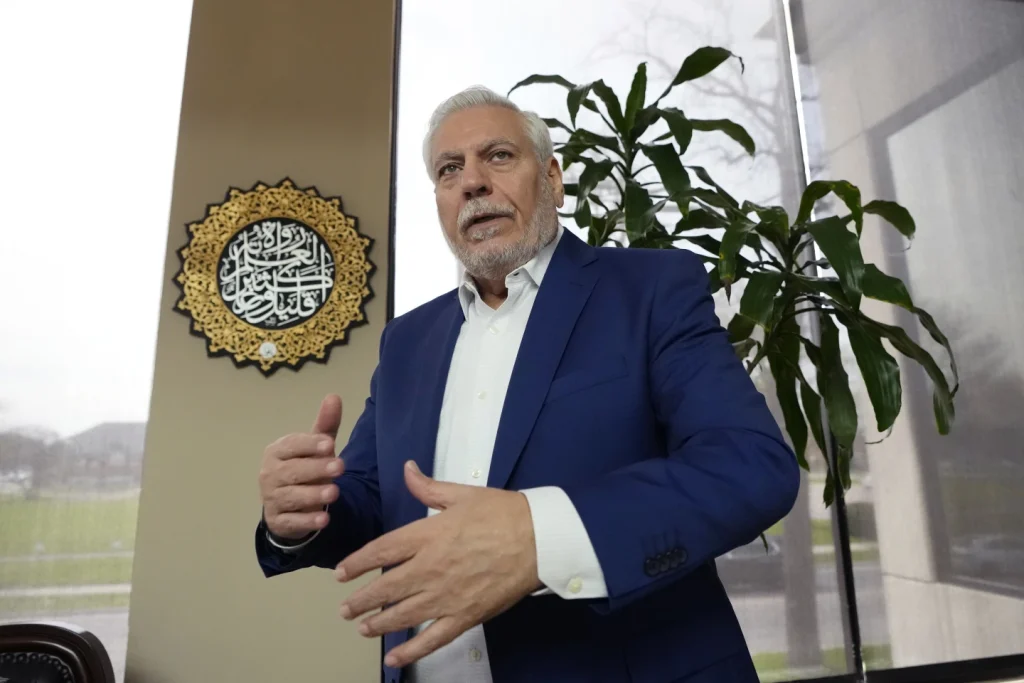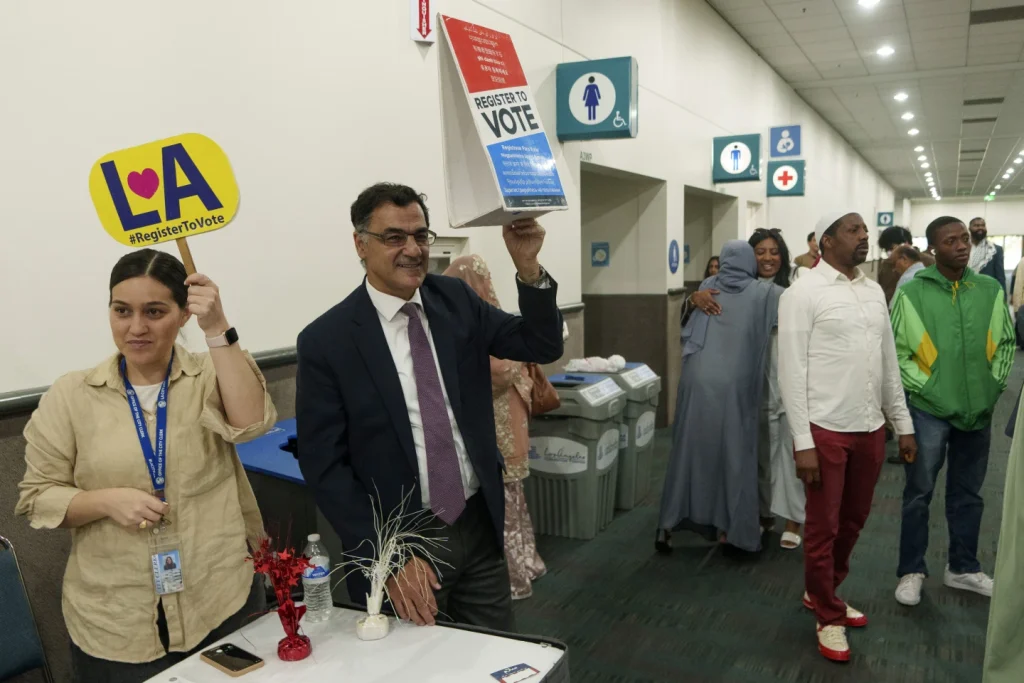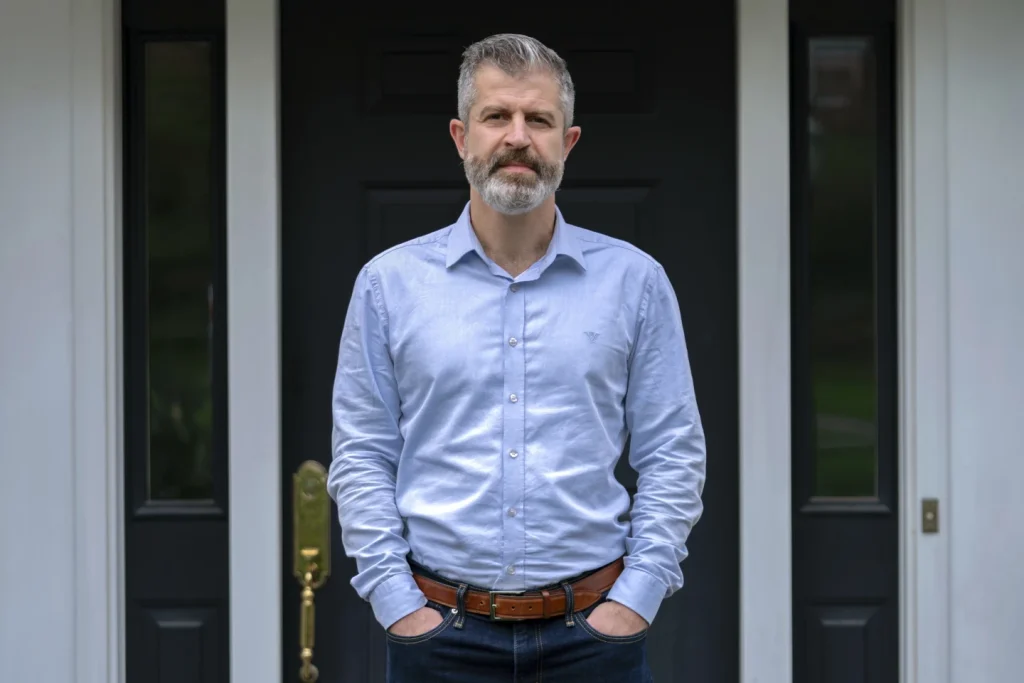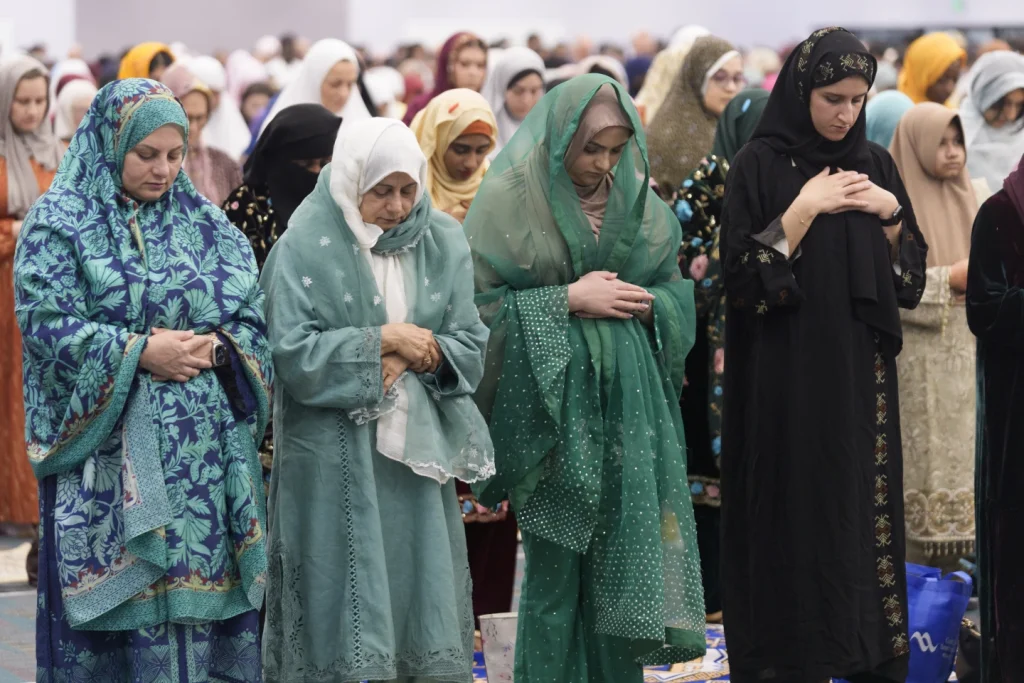In the intricate tapestry of international relations, the delicate balance between diplomacy and public sentiment often plays a pivotal role in shaping policy decisions.
The recent interactions between the White House and Muslim and Arab American leaders, as highlighted by the account of Osama Siblani, publisher of the Arab American News in Dearborn, Michigan, underscore the nuanced dynamics at play in U.S. foreign policy, particularly concerning the Israeli-Palestinian conflict.
The narrative of Siblani’s morning coffee interrupted by a message from a Biden adviser paints a vivid picture of the behind-the-scenes dialogues that shape diplomatic stances.
The discussion surrounding President Biden’s call with Israeli Prime Minister Benjamin Netanyahu, particularly in the context of U.S. assistance to Israel’s military operations in Gaza, reflects the complexities and sensitivities inherent in navigating the intricacies of the Middle East conflict.
The exchange between Siblani and the White House advisor encapsulates the tensions and frustrations felt by many Muslim and Arab American leaders who have been grappling with the perceived inadequacy of the U.S. response to the plight of Palestinians in Gaza.
The call for “giant steps rather than baby steps” echoes a sentiment of urgency and impatience in addressing the humanitarian crisis and the broader geopolitical implications of the conflict.
The White House’s efforts to maintain open channels of communication with these communities, as evidenced by the informal contacts with Siblani and others, highlight a strategic approach to engaging with diverse voices and perspectives.
However, the reluctance of some leaders to engage in dialogue with the administration underscores a deeper sense of disillusionment and skepticism regarding the efficacy of such interactions in effecting tangible change.

The decision of a Palestinian American doctor to walk out of a meeting with President Biden serves as a poignant symbol of the growing disconnect between the administration and segments of the Muslim and Arab American communities.
The breakdown in communication and the perceived lack of progress in addressing longstanding grievances have strained critical relationships and hindered opportunities for constructive dialogue and collaboration.
The challenges facing the White House in navigating these complex dynamics underscore the need for a nuanced and empathetic approach to engaging with diverse communities and addressing their concerns.
The urgency of the situation in Gaza and the broader implications for regional stability demand a proactive and inclusive strategy that prioritizes dialogue, understanding, and meaningful action.
As the world watches with bated breath, the unfolding developments in U.S. foreign policy towards the Middle East serve as a testament to the power of dialogue, diplomacy, and engagement in shaping the course of history.
The lessons learned from the interactions between the White House and Muslim and Arab American leaders underscore the importance of listening, empathy, and collaboration in building bridges and fostering mutual understanding in a rapidly changing world.
In the realm of international relations and diplomacy, communication plays a pivotal role in shaping policies and fostering relationships between nations.
The recent statements made by Michigan State Rep. Abraham Aiyash and the subsequent responses from White House officials highlight the complexities and challenges involved in engaging with diverse stakeholders, particularly in times of conflict and crisis.
The exchange of words and perspectives between Aiyash and the White House officials underscores the importance of effective dialogue in addressing pressing issues such as the ongoing conflict in the Middle East.

Aiyash’s frustration at the lack of progress or response from the White House reflects a broader sentiment among certain communities that feel marginalized or unheard in the decision-making processes of the government.
Dan Koh’s assertion that the administration seeks to be accessible and engage with various groups is a positive step towards inclusivity and transparency.
However, the disconnect between the perceived effectiveness of these engagements and the actual impact on policy decisions raises questions about the efficacy of such dialogues in influencing change.
The involvement of top White House officials in outreach efforts, including discussions with diverse communities such as Muslims, Arab Americans, and Palestinian Americans, demonstrates a recognition of the need to address the concerns and perspectives of different groups affected by the conflict.
The emphasis on building relationships and understanding diverse viewpoints is crucial in fostering mutual trust and collaboration in navigating complex geopolitical challenges.
The divergent views within the Muslim community regarding support for President Biden reflect the nuanced dynamics at play in shaping political allegiances and priorities.
The disillusionment expressed by individuals like Salam Al-Marayati underscores the importance of meaningful engagement and genuine dialogue in addressing grievances and finding common ground on contentious issues.
The escalating violence and humanitarian crisis in the region underscore the urgency of finding sustainable solutions and advocating for the protection of civilian lives.
The calls for policy changes, including halting weapons deliveries to conflict zones, highlight the moral and ethical dilemmas faced by governments in balancing strategic interests with humanitarian concerns.
The role of elected representatives like U.S. Rep. Ilhan Omar in pushing for policy reforms and holding leaders accountable reflects the essence of democratic governance and civic engagement.
The tensions between supporting the current administration as a safeguard against potential threats and advocating for substantive policy shifts underscore the complexities of political decision-making in times of crisis.

In conclusion, the interactions between stakeholders, policymakers, and community leaders underscore the importance of dialogue, empathy, and action in addressing complex geopolitical challenges.
The need for inclusive and responsive governance, informed by diverse perspectives and guided by ethical principles, is essential in fostering peace, justice, and stability in a rapidly changing world.
As we navigate the uncertainties of the present and strive for a better future, let us heed the lessons of history and the voices of those calling for change, unity, and compassion in our shared journey towards a more just and peaceful world.

